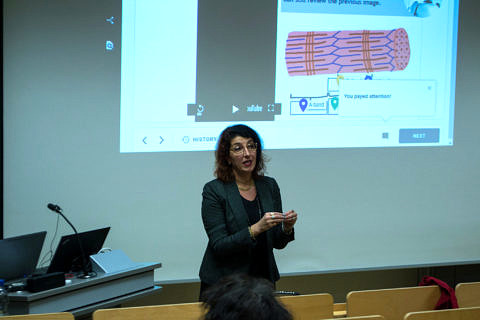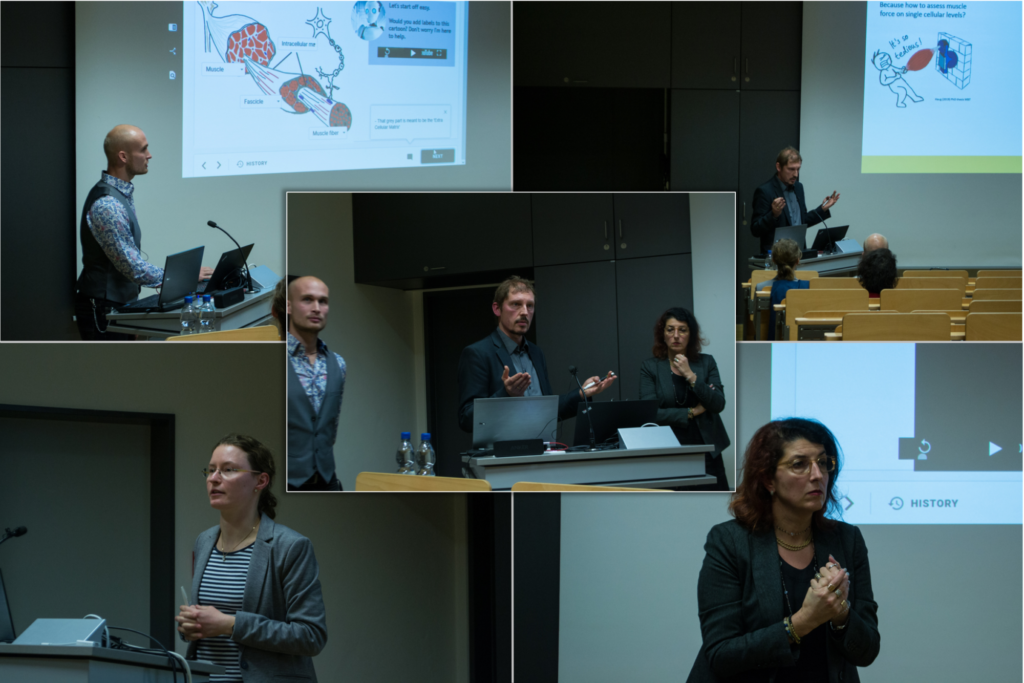Virtual labs – with a concept!
Prof. Dr. Patsie Polly, UNSW, School of Medical Sciences, Sydney. We greatly appreciated to host Prof. Dr. Patsie Polly from the end of November to the mid of December at our institute and welcome her as project partner on a BayIntAn project of the Bavarian Research Alliance. Repeated collaboration over several years already has set important milestones to improve higher education at both FAU and UNSW. With Patsie being an expert and leader in digitization of teaching, we aspire to develop new adaptive online learning and teaching courses available to FAU students and in a broader sense, to students, lecturers and colleagues worldwide. In her talk at the ZMPT (27th November), she presented current state-of-the-art concepts of teaching at University of New South Wales (UNSW), Australia, where she serves the role of Scientia Higher Education Fellow, aiming to increase student engagement and learning progression feedback by implementing virtual laboratories or vLabs in every-day education scenarios. Her expertise covers more than 20 of these vLabs that are run globally via the adaptive e-learning platform SmartSparrow. These vLabs are incorporated in the university’s online learning management system (e.g. via Moodle) and provide many interactive education components (e.g. list-sorting, drop-in-the-blanks, hot-spot mapping, or logical wiring tasks). They also feature powerful anonymous student performance tracking, allowing the lecturer to improve his/her performance. Her presentation was embedded in the QuiS framework, for which we were given the opportunity to present the results of this exciting joint collaboration to introduce our collaborative concept of digitizing a pre- and post-lab course for our Master’s in-depth prac class in ‚Muscle Biomechatronics‘. In that setting, student’s prac class preparation is still commonly restricted to PDF course manuals which are reported by students as resources that could be ‘frustrating to use’, as there was no way to ‘get in touch with the technology’ before entering the wet lab. Therefore, we aim to improve student experience through an engaging and motivating online course to be used as resource before and after the real lab scenario. Together, we intent to increases student comprehension of current concepts in biomechanics by offering a unique and immersive learning experience that could serve as best practice for an FAU-wide portfolio of vLab units across study courses, and potentially, across universities worldwide.


